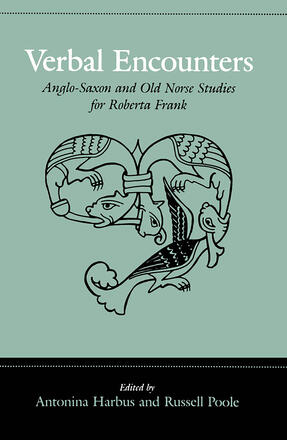
Verbal Encounters
Anglo-Saxon and Old Norse Studies for Roberta Frank
Description
Due to conquests and colonialism through the centuries, it is not unusual for languages and cultures to be influenced by other, foreign languages and cultures. The modern English language, for example, owes many of its words to Old Norse and Latin, debts dating from contacts made during the Middle Ages. Verbal Encounters is a collection of papers on the cultural and linguistic exchange in Old Norse, Old English, and medieval Latin literature written in honour of Roberta Frank, former University Professor of Medieval Studies at the University of Toronto.
The essays feature new scholarship in the field, on topics such as the integral position of Anglo-Latin within Anglo-Saxon culture and literature, constructions of feminine strength and effectiveness in Anglo-Saxon literature, the rise of Latin-based learning in twelfth-century Iceland, medieval Icelandic religious poetry, and the conversion to Christianity in medieval Scandinavia.
The essays in Verbal Encounters are not merely a fitting tribute to Roberta Frank, but also strong contributions to current scholarship on medieval literature and culture.